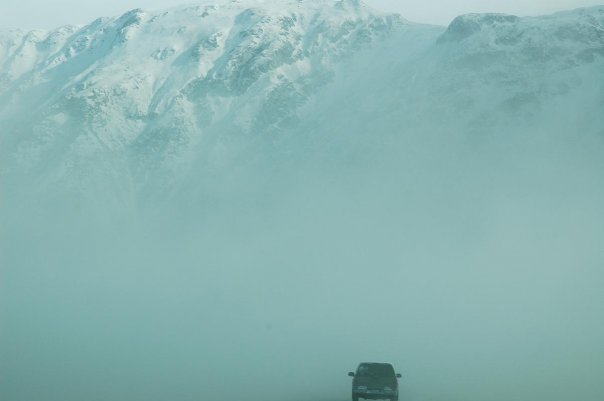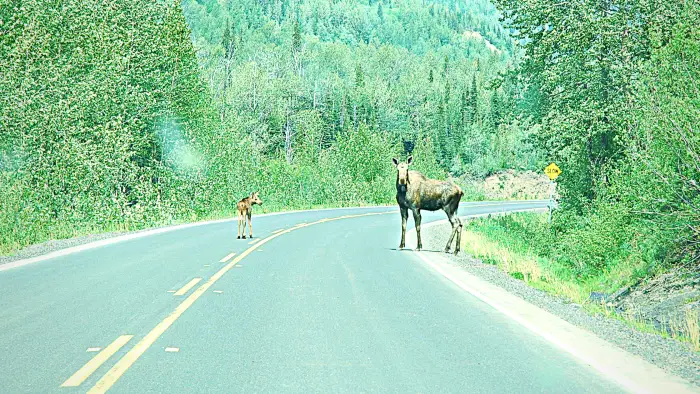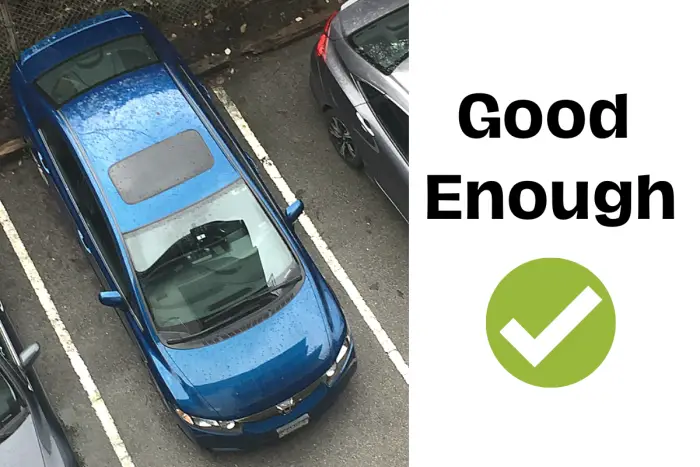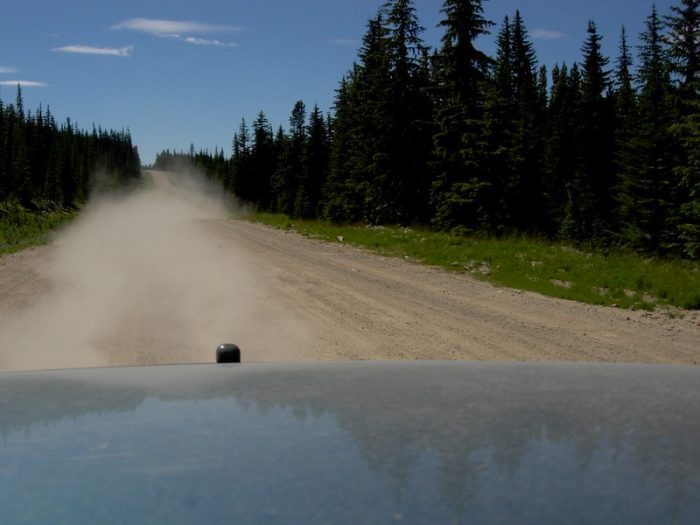ICBC Road Test Class 7 – What Is It?
The ICBC Class 7 test marks the leap from the ‘L’ (7L) phase to the ‘N’ (7N) stage, unlocking solo adventures on the open road along with different restrictions on the license.
Class 5 Road Test ICBC – What Is It?
The Class 5 license means you can say goodbye to the annoying restrictions of the “N” stage. Plus, if you ever get a ticket, for example, the punishments aren’t as harsh.
How Long Are the ICBC Road Tests?
ICBC Class 7 Road Test
- They say the Class 7 test takes 45 minutes, but that includes all the time in the end for debriefing, going inside to do paperwork, etc.
- Usually, the actual driving time is about 30 minutes
ICBC Class 5 Road Test
- The class 5 road test usually takes about 45 minutes. It’s a bit longer than the Class 7 ICBC road test, partially because it can include the freeway
- Drivers are expected to be somewhat experienced and show smooth car control, safe decision-making, and sufficient knowledge & skill
Freeway Merging On The ICBC Road Test Class 5/7
- The ICBC road test Class 5 (to get your Class 5) usually includes merging onto a highway or freeway
- The ICBC road test Class 7 (to get your “N”) does not include merging onto a highway or freeway
- Why not? I think it’s because roughly 50% of people fail this road test anyway. So it’s sort of a waste of time. Freeway driving – in the grand scheme of things – is not that important, and not that dangerous when compared to driving at intersections
Hazard Perception Differences On The ICBC Road Tests
Both tests will include a part for you to show that you are aware and thinking about possible dangers/hazards while driving. This is known as “hazard perception” and you can feel free to check out my full hazard perception guide to help you prepare even more.

What is this hazard perception thing? It just means you have to tell the driving examiner what you see – or maybe it’s something that you can’t see – in your driving environment that could be a potential hazard. The examiner will literally say to you, “Now tell me some potential hazards?” (something like that).

ICBC Road Test Class 7 Hazard Perception
For the ICBC road test class 7, you will do this while stopped
Your examiner will ask you to pull over to the side of the road to do your hazard perception. If they ask you to park there, be sure to set your parking brake, too.
Some common hazards may include things like:
- You can’t see what’s around a curve or hill
- You can’t see an intersection or driveway because of visibility issues (there are trees, bushes, flowers, structures, or something else in the way)
- There’s a crosswalk you can see but your visibility isn’t good to tell if there are pedestrians near the edges
- The road is wet and very slippery because it’s the first time it has rained in a long time
- The sun is shining straight into your face and it’s hard to see things
- A school zone or playground zone is coming up, and there may be children nearby playing or running into the road
ICBC Road Test Class 5 Hazard Perception
For the class 5 road test, you will have to do this while you’re driving
I guess this means after you have been driving on your own for at least two years, you are expected to be able to see hazards, think, drive, and talk and answer questions, all at the same time.
Both ICBC Road Test Class 5 & Class 7 Check Your “Global Skills”
What are ICBC’s Global Skills?
ICBC’s global skills are simply a way to measure drivers and their success or lack of success on the road tests. Demerit points are not a thing anymore, at least not for these particular tests. So ICBC has come up with a newer and totally slightly confusing way to mark the road test.
Both the ICBC road test Class 5 & Class 7 will naturally check you for these important driving fundamentals. Let’s take a deeper look at each one.
ICBC’s Global Skills
Observation
- Basically, do you see stuff?
- Do you see the stuff you’re supposed to be seeing?
- For example, pedestrians about to cross at the crosswalk, playground zones, and other cars doing things maybe they shouldn’t be (check out my defensive driving article to learn more)
- Do you try to turn right on a red light, even though there is a sign at the intersection indicating not to?
Space Margins
- Do you keep a proper space margin around your vehicle?
- Do you follow the car in front too closely?
- Are you the correct amount of space away from curbs?
- Are you in the correct position when you’re turning right, turning left, and going straight at intersections?
Speed
- Are you speeding through a school zone?
- Are you going too slow because you’re nervous (40 km in a 50 km zone for no apparent reason)?
- Are you keeping up with speeding traffic on the freeway? (Never keep up with speeding “traffic flow.”)
- Check out my article on residential streets and speed limits to read more about that.
Steering
- Are you controlling the car smoothly?
- Are you doing strange things with the steering wheel?
- Are you only using one hand to steer? Do not “hook” or “palm” the steering wheel.
- Use two hands to steer at all times, even if you’re driving a standard unless you’re backing up in a straight line.
Communication
- Do you use your turn signals to tell other road users what you plan to do ahead of time?
- Do you honk in a situation where it might be necessary?
- Do you get eye contact with other road users as part of your defensive driving strategy?
Both Tests May Include The Following Driving Skills
Each road test is not going to be exactly the same. Some people will have to do a certain skill that perhaps won’t be tested on the next person. Each location is different. Road test examiners follow various routes.
At the Point Grey (Vancouver) location, there is technically no nearby “freeway” for showing your merging skills. So, Class 5 tests at that location simply won’t include this skill, although you might be asked to drive on a road with a higher speed limit (UBC).
The following may be tested on both ICBC road test Class 5 & ICBC road test Class 7
- Intersections, going straight through, right turns, left turns
- Pulling into traffic
- Backing up
- Changing lanes
- Pulling over & stopping/parking at the side of the road
- Hill Parking
- Angle parking
- Reverse Stall Parking or forward stall parking
- Parallel Parking
- 2-point turn or 3-point turn
- General driving, hills, curves, school zones, residential streets, busier streets, all that fun stuff
- Knowing what to do around emergency vehicles
Not every skill will be part of your test, but practicing them all will give you the best chance of being prepared. The thing is, examiners, want to obviously see that you are safe and do not break any laws, such as changing lanes over a solid white line.
ICBC Road Test Class 7 Failure Rate
For the class 7 ICBC road test, around 50% of people fail
Maybe this is why they don’t even bother wasting time on the freeway
Your examiner is basically looking that:
- Know what you’re doing, with a certain amount of confidence
- Can pass all your global skills
- Make good decisions, especially at intersections
- Control the car smoothly
- Don’t break any laws like speeding, reversing in an intersection or crosswalk
- Don’t do anything remotely dangerous such as not noticing a pedestrian, lane changing when it isn’t safe, etc.
You do need to know how to park but don’t need to be perfect
It takes a long long time to get good at parking. Even driving instructors – who are just people – don’t park perfectly every day, all the time. New drivers aren’t expected to be really amazing and impressive at parking. They are expected to be safe, and legal.
It’s more important that you have grasped the general concept of how to park the vehicle while being safe, and that you have good observation skills.
Is a pedestrian about to walk behind you while you’re parking? It is way more important to simply notice this than to be highly skilled and perfect and make sure your parking looks really beautiful or something like that.
Also, you can fix your parking if you need to make some readjustments, just as drivers do in real life. It’s not a big deal. That goes for both the class 5 road test and class 7, too, of course.

Preparing for ICBC Road Test Class 5
It doesn’t take long to gather bad habits once people start driving on their own. This is mostly what the ICBC road test Class 5 road test is about.
For example:
- Do you still observe and drive at the proper speed in a playground zone? Like, exactly 30 km/hr? Check out our school and playground zone article here.
- Are you speeding on the freeway to “keep up with the flow”? Check our article about the fast lane, slow lane, right lane, and wrong lane.
- Do you “palm” or “hook” the steering wheel? Read up about the proper ways to steer the car here in my article.
- Do you drive with only one hand on the wheel? Don’t!
- Do you forget all of your shoulder checks? Check out my article on blind spots and shoulder checks to read more.
- Do you fully and completely stop your vehicle at each and every stop sign? I also have a Stop sign vs. stop line article you can check out.
- Are you using your left foot on the brake pedal? Don’t do that!
- Do you regularly flip other drivers “the bird”?
- Do you cut through the gas station to get your right turn done faster?
What happens if you fail your Class 5 road test BC?
If you fail your Class 5 road test, don’t panic. You’ll get your “N” License back so you can continue to practice. After your first road test attempt, you can take the test again after 14 days. If you fail a second time, you can try again after 30 more days. If you fail a third time, you can take the test again after 60 days. In other words, nothing bad will happen per se; you’ll just need to keep practicing.
Summary
As you can see, each test is very similar. One (Class 5) is basically a little longer and is mostly checking for bad habits. I mean, if you’ve survived driving on your own for at least two years, then you must be doing something relatively right (but don’t relax too much, because two years is actually not a long time in the grand scheme of things).
The class 7 ICBC road test is to see that you’ve been properly trained to drive safely on your own, all by yourself in the big bad world. A lot of drivers simply aren’t prepared; they simply aren’t trained enough to pass. Driving is a complex skill that takes time to master, and it’s hard (if not impossible) to somehow cheat or speed up the learning process.
That’s why it’s focused on basic skills and on all intersections. Intersections close to your home are the #1 most common place where crashes happen (#2 – parking lots). Check out our epic tips for passing the ICBC road test for a lot more details on how to pass the road test.

Conclusion
These road tests are not that different. One is for extremely inexperienced new drivers, and the other is for more experienced new drivers. It’s not really complicated. Just make sure your car control is smooth, you make safe decisions, and don’t do anything illegal.
And remember you don’t need to be perfect. This one time, a new driver made contact with the curb with their wheel when parallel parking. The hubcap, which was already loose-ish, fell completely off the car.
The examiner retrieved it, and the driver still passed the road test. It’s because the rest of their driving was excellent, and hubcaps don’t have feelings.
Show you are “experienced enough”
You could also think about it in a slightly different way: simply show the examiner, but also make them feel like you are an experienced enough, safe driver. How would a passenger feel when, say, a driving instructor was driving? They’d feel pretty safe, right? They would not ever question what the driver was doing because the driver would seem safe, knowledgeable, and confident in everything they did, even if they weren’t perfect.
I realize you aren’t a driving instructor, but you can still give the examiner that same feeling like you are a driver who knows things, and who can do this.
Appear safe. Appear confident. Appear that you know what you’re doing. You are an intelligent being, capable of making great decisions while operating a motor vehicle.
And if you don’t feel like you know what you’re doing, get a driving lesson or a few to help you out, and also check out my YouTube channel.
A woman was driving across the white lines in a parking lot not bothering to use the lane that was…